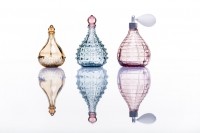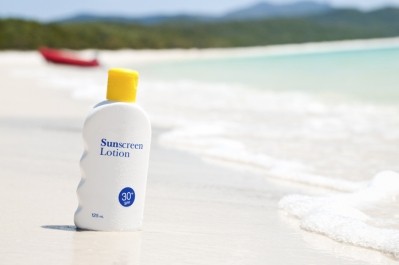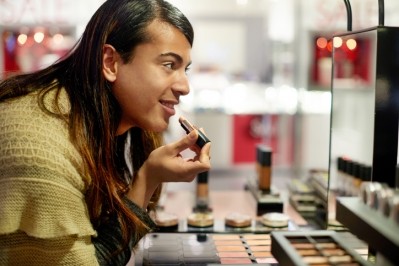Catch up on the world of fragrance with CosmeticsDesign

Fragrance is in a unique position in cosmetics, in which it is sometimes a complete product and sometimes a component of another product.
The fragrance industry has been struck by supply chain concerns and sustainability concerns like most of the beauty industry but is also uniquely vulnerable to supply chain disruptions caused by climate change.
With these articles, learn more about what is happening in fragrance today, what experts and talking about and what the future of fragrance might look like.
Three takeaways from the Fragrance Creators Association 2021 report

Fragrance is vital in many industries, including personal care, and the Fragrance Creators Association is working to improve its impact and public understanding.
The trade association recently released its 2021 impact report and the organization's president, Farah Ahmed, told CosmeticsDesign it outlines what was accomplished for the industry last year, both with domestic and international partners.
While the report outlines a number of specific actions the organization took last year, Ahmed said there are a few takeaways on what is happening in fragrance that personal care professionals can use to understand the segment right now.
One of the primary factors in changing how the Fragrance Creators Association and the fragrance industry more broadly function was the onset of COVID-19, Ahmed said. Leaders across the segment had to come together to solve the challenges brought about by the pandemic.
Fragrance competition to bring Indian sandalwood back to market with sustainable Australian source

After decades of dwindling Indian sandalwood availability, an international fragrance competition is being held to introduce the world of perfume to a sustainable source of the scarce ingredient.
The American Society of Perfumers has partnered with Australian sandalwood producer Quintis to hold the competition, being held between October 28, 2021 and March 31, 2022, asking master and junior perfumers to create an Eau de Toilette with at least 1% Quintis sandalwood, with no price limit.
Vanessa Ligovich, chief marketing officer at Quintis, said the point of the competition is to encourage perfumers to be creative with the ingredient which has been largely unavailable for formulation for years.
“Taking it to market has been interesting because there’s this perception that it’s gone,” Ligovich told CosmeticsDesign. “’It’s on the vulnerable species list and we shouldn’t formulate with it because we can’t guarantee the supply’. A lot of the work we’ve been doing in the last 12 months is telling people there is a sustainable supply.”
Bio-based solvent offers petro-free option for fragrance, can cut up to 50% of GHG emissions

Biotech company Genomatica presented a bio-based alternative petroleum-based solvent in fragrance during NYSCC Suppliers’ Day which they claim can cut carbon emissions by up to 50%.
The San Diego-based company showcased their Brontide natural butylene glycol in the show’s fragrance pathway as the company attempts to transition the ingredient from primarily personal care products into the world of perfumes and other scents.
Genomatica Product Marketing Manager Kyle Huston said the company develops ingredients through biofermentation of sugars and created the Brontide natural butylene glycol as an alternative solvent to the conventional petroleum-based butylene glycol.
The ingredient has been on the market for around three years as a personal care solvent and Huston said the company recently began building out data to show its use in the fragrance sector.
Essential oils could have uses across cosmetics, but still pose significant challenges

Consumer and regulatory demands are pushing personal care brands to use more botanical ingredients, pulling essential oils further out of fragrance and demanding more research.
A paper was published in Cosmetics by a research team out of Spain and Argentina, Guzmán et al, which summarized the current body of knowledge on the use of essential oils, and components of essential oils, in cosmetics and beauty products.
Guzmán et al said natural ingredients have been long used in cosmetics, but recent consumer sentiment and international regulations have pushed the 'natural beauty' segment to grow, making up around 10% or $40 billion of the current global market.
Essential oils have long been used in fragrance, as they are high in aromatic compounds, but the research team said their antioxidant, bactericidal, virucidal, fungicidal, antiparasitic, insecticidal and medicinal properties offer broad utility in personal care.
How biotech could improve the ingredient supply chain, according to an expert

Green beauty, clean beauty and conscious beauty all start at the bottom of the supply chain, and a biotech expert says fermentation could make that easier.
Humans have been harnessing biotechnology since the advent of fermented foods and drinks, but since the 1970s the process has been growing as a strategy to produce cosmetics ingredients.
Jasmina Aganovic, CEO of biotech company Arcaea told CosmeticsDesign that biotechnology could help the beauty industry reduce its need for extractive processes in ingredient production, including extraction of botanicals.
“We think to appreciate nature is to consume it,” Aganovic said. “Can we create a way to honor, but be very reciprocal, with our environment. That's what biotech presents, the ability to appreciate without the extractive relationship. That's actually a much healthier relationship for us to have with the world around us.”










